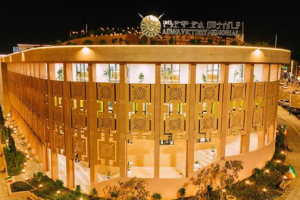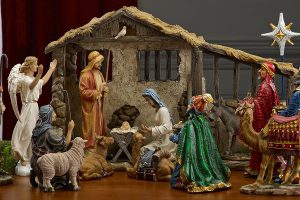BY MULUGETA GUDETA
Ayi Kuwei Armah is a major Ghanaian writer born in 1939 and best known for his novels that deal with post-colonial Africa in general and post-independence Ghana in particular. Among the modern classics of African literature, one can easily identify Chinua Achebe’s Things Fall Apart, as a pioneer. Another classic novel that has not lost its luster is Ayi Kuwei Armah’s The Beautiful Ones are not Yet Born, which was published in 1968 and is still widely read as a critical analysis of and a verdict on the corruption of African cultures by the new ruling elites and their foreign sponsors.
The beautiful ones are not yet born is the debut novel by Armah that tells the story of a nameless man who struggles to reconcile himself with the realities of post-independence Ghana. The author once spoke about the meaning of the title of the book which is enigmatic for many readers. He wrote that, “The phrase ‘The beautiful One’ is ancient, at least five thousand years. To professional Egyptologists, it is praise name for a central figure in ancient Egyptian culture, the dismemberment and remembered Osiris, a sorrowful reminder of our human vulnerability to division, fragmentation and degeneration, and at the same time a symbol of our equally human capacity for unity, cooperative action, and creative regeneration.”
According to Maureen Green, a certified educator writing on her online blog says that, “The meaning of the title of Armah novel is twofold. The beautiful Ones have of course, already been born, but for myriad of reasons, they do not know their own power. The other meaning is that those alive in the world now, to suffer its sorrows and wonder what will happen, try to take hope in the fact that those who will make things better will come in the next generations.
“In referring to Osiris, the author allows for a connection between the original myth and the book’s title. Osiris is murdered and his less deserving brother assumes authority, then, Osiris is resurrected stronger. Since the novel takes place during a change of regime in Ghana, the title indicates that death and disorder are part of life –but so is renewal.”
Now that we have seen what the meaning of the book is, the next question that comes to mind is about the themes of the novel. According to a 2018 note on the themes of Armah’s novel, “The novel portrays the central theme of corruption as the bane of the society. The theme of corruption is explored along with other sub-themes such as poverty, social inequality, hero-worshipping, political instability, economic sabotage solitude and retributive justice.”
Armah is not the first African writer to deal with the theme of corruption in African societies. His contemporary Nigerian Chinua Achebe’s novel Anthills of the Savannah deals with the same theme in the context of Nigerian society. Armah’s treatment of the subject is notable for its profundity, symbolism and the use of ancient Egyptian myth to make his point. It is also the first reaction by an African writer to the bane of corruption that became a central concern of African politics in the subsequent decades down to this very day.
Armah’s novel is still relevant to our times simply because the problem has become more complicated and more widespread than it was in the years right after the decades of Africa’s independence. Although Armha writes about corruption in Ghanaian society his reach is larger than that and address the entire African continent where corruption has become a defining paradigm of the political and economic systems in palce.
Armah also agrees with this description when he says that, “Besides the the protagonist and his teacher, the majority of characters in the book are corrupt. A case in point is the government minister and, Joseph Komsoon, who uses the protagonist’s wife to acquire a boat because it is illegal to do so as government official. Furthermore, the author points out how law enforcers take bribes from bus drivers whenever they are caught in unlawful acts.
“The other theme in the book is poverty. Incorruptible civil servants and those in lower position live hand-to-mouth because of the high cost of living in Ghana at that time. The state of poverty in the country leads to many citizens engaging in corrupt dealings to survive. For example, Oyo, the protagonist’s wife, sees her husband as a coward because of his moral uprightness. Due to the family’s low economic status, Oyo is corruptible-she believes corruption is the only way her family can have a better life.
Another discussion of the book by the blogger indicated above, suggests other related themes she discovers in Armah’s novel. She says that the first two-thirds of the novel takes place during passion Week. For the bus driver in the opening scene, however, the season means poorer passengers and few occasions to extort money from them. The man experiences hunger during his lunch-hour walk and after relating it to a fast, has a kind of vision in which purity suddenly seems to appear out of nowhere.
“Yet, Armah is certainly not suggesting a Christian view of the world. If anything, Christianity is, along with capitalism and other Western values, one of the undesirable legacies…Though Koomson is a false Christ and Christianity is not Armah’s answer to the crisis in Ghana, the theme of salvation is central. The novel is about a man’s soul, in search of a way out of the vicious cycle of birth and decay-in search of the beautiful.”
Fast forward to 2021, and we realize that Armah’s novel was a farsighted warning against the most dangerous threat to Ghana’s, and by extension to Africa’s political stability and economic development. In the decades after the writing of the novel many African nations have suffered political instability caused by greedy political elites and military juntas that looked at democracy and people power as a mortal threat to their economic and political domination. Hence they resorted to coup d’états that were answered with counter coups and the cycle of instability has been repeating itself in almost all African countries until now.
The overthrow of Kwame Nkrumah’s government in Ghana was the first time that the military was emboldened to take such a risky action and exposed the hard-won independence of the country to imperialist and neocolonial manipulations that resulted in repeated cases of violent regime changes across the continent. Armah’s novel is thus not only a warning but also a solution to the malaise constantly generated by corrupt elites. Starting from its titles all through its treatment of the central themes, as well as character description, symbolism and absurdity the situation, the novel teems with a constant repetition of the solution to corruption in Ghana and Africa in general and that is the empowerment of the people of Africa who had no conscience of their power as the myth of Osiris and the title to the book suggest.
Ayi Kuwei Armah is not only a visionary novelist. He is also a novelist who does not limit himself to the task of exposing the greatest threat to the survival and health of African societies but also goes as far as providing the tool to get rid of the evil of corruption. Thus Armah’s combines the role of accuser or critic of the African corrupt elites and indicator of the path to a beautiful world where the people exercise their rights by realizing their power.
The tool against elite corruption is therefore the empowerment of the people who have been kept unconscious of their potentials for change by the corrupt elites who are determined to be the rulers at the cost of the people. Even when the ruling and corrupt elites resorted to democratic rule, it is a perverted kind of democracy that they practice, a democracy that will consolidate the political and economic privileges of the very elites that deprived the people of their right and power. In this sense, Armah’s analysis of the nature of corruption is not only clinical. It is also surgical although he is not the one who is entitled to do the operation to get the body politic free from the cancer of corruption. He rather leaves this job to the people and to their realization of their transformative powers.
More than 50 years have passed since the publication of The Beautiful Ones Are Not Yet Born. Yet, Africa’s long struggle against corruption is still going on and there have been many more writers who joined the fight with their pens. Among the latest fighters is of course Kenyan novelist Ngugi wa Tiongo who exposed elite corruption in his country under the Arap Moi regime in his magnum opus entitled Wizard of the Crow. Between the Beautiful Ones and Wizard of the Crow, there have been other writers who dealt with the theme of corruption and continue to do so until now. Armha has written more than seven books that deal with the various facets of Ghanaian, and by extension African societies.
What makes Armah a giant of modern African literature is in fact his success in exposing this evil in his debut novel that enjoyed international acclaim. A few African writers have succeeded in dealing with the perennial challenge of African societies and scored a big point. Armah is certainly one of them. That is also why the novel remains an enduring classic and highly readable piece of literature more than 50 years after its publication.
The Ethiopian Herald 21 March 2021




